PHOTOGRAPHY CLANCY PAINE
Whitney in her studio, which is a short walk from the back door.
Sign up to our mailing list for the best stories delivered to your inbox.
Before settling in her husband's home town in New South Wales' Central West, Whitney Spicer never dreamed she’d one day become an artist.
WORDS VICTORIA CAREY PHOTOGRAPHY CLANCY PAINE
The 31-year-old lives at Karuah, a 40-hectare property on the outskirts of Manildra in the Central West of NSW, with her husband Tim and their three sons: Finley, eight, Teddy, six, and three-year-old Darby. It’s the third house the pair have renovated or built since they moved back to Orange 10 years ago. “It wasn’t even officially on the market but we were driving past on our way to Peak Hill one Sunday when Tim said we should stop and have a look as he had heard that it might be available,” she explains.
It didn’t take long for the young couple, who were living on two hectares at the time, to see the potential of this bigger property with its array of outbuildings, including a beautiful old shearing shed. “I just loved the shearing shed immediately,” she says. “That was a deciding factor.”
Tim, who has an earthmoving business, had grown up in the area and wanted a similar life for his family, while Whitney, who had already made the move from Queensland to Orange, was initially not sure about moving even a tiny bit further west. But, today, she has absolutely no regrets.
“It makes me so happy to see the school bus drive up the dirt road every morning. My boys wait patiently at the gate for their bus driver to pick them up,” she says. “We are so lucky to live here, and I wouldn’t dream of living anywhere else.”
The boys spend their days helping their dad — who also runs sheep on another 200-hectare block just down the road — and looking after their poddy lambs Tiny and Curly, all with Tuck, (the ‘Houdini’ under the tree), by their side. Still only 18 months old, the dog is so devoted to them that Whitney has had to get onto the school bus to retrieve him, much to the delight of all the local kids, after he thought it was a good idea to go to school as well. “He is a great friend to the boys and has been known to attempt a ride in the school bus… I have seen Finley walking him back up the driveway many times while the bus driver patiently waits,” she explains.
“I have always loved to paint, but didn’t think I could make it my career. Following the path I took in accounting has been so valuable in our small business and even with my own art practice. But practising accounting and studying for my CA [Chartered Accountant] was not a happy time for me, and I developed anxiety,” she says.
“Painting gave me something to look forward to and a real purpose. I think my anxiety was due to the stress I put on myself to be successful in accounting, while painting gave me the opposite. It was something I knew I could do, and it was pure happiness! I feel like I have found my place.”
A key part of finding that place has also been family and the local community — one clue to just how important they have been is hanging framed on the wall just as you walk inside the back door. The spidery scrawl is a little hard to read. Written in black biro on a thin sheet of lined paper, is a recipe for Tim’s grandfather Reg’s ‘Ripe Tomato Relish’.
“You couldn’t visit Tim’s grandfather Reg without being given a jar of tomato relish, which he made from his own homegrown tomatoes. He loved that I wanted to try to cook it myself, so he wrote the recipe out for me,” explains Whitney. “It took quite a few attempts to get it right; each time I made it, he would tell me I needed a bit more of ‘this’ or ‘that.’ It was something that couldn’t be taught from a recipe, just practice and words of advice.”
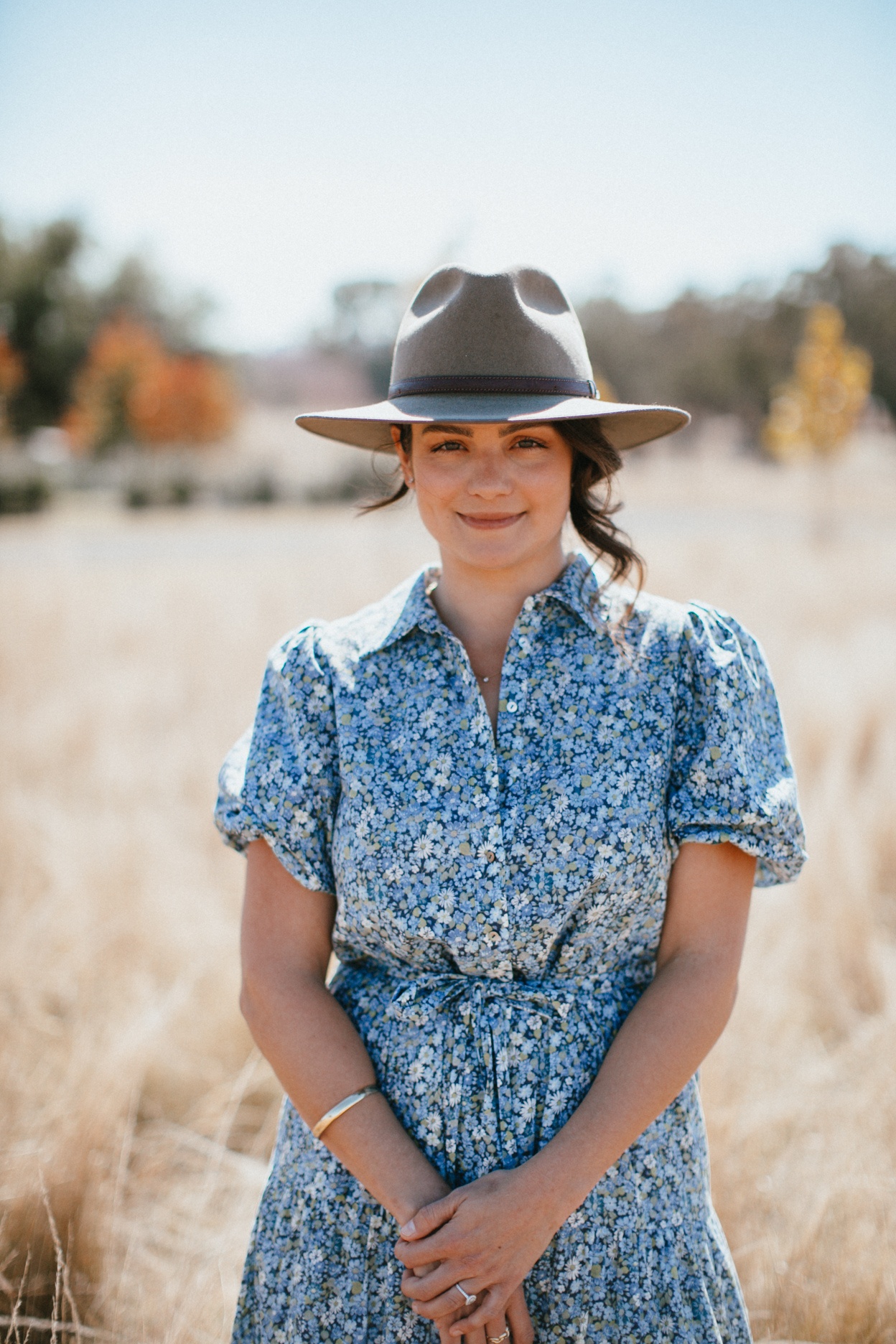
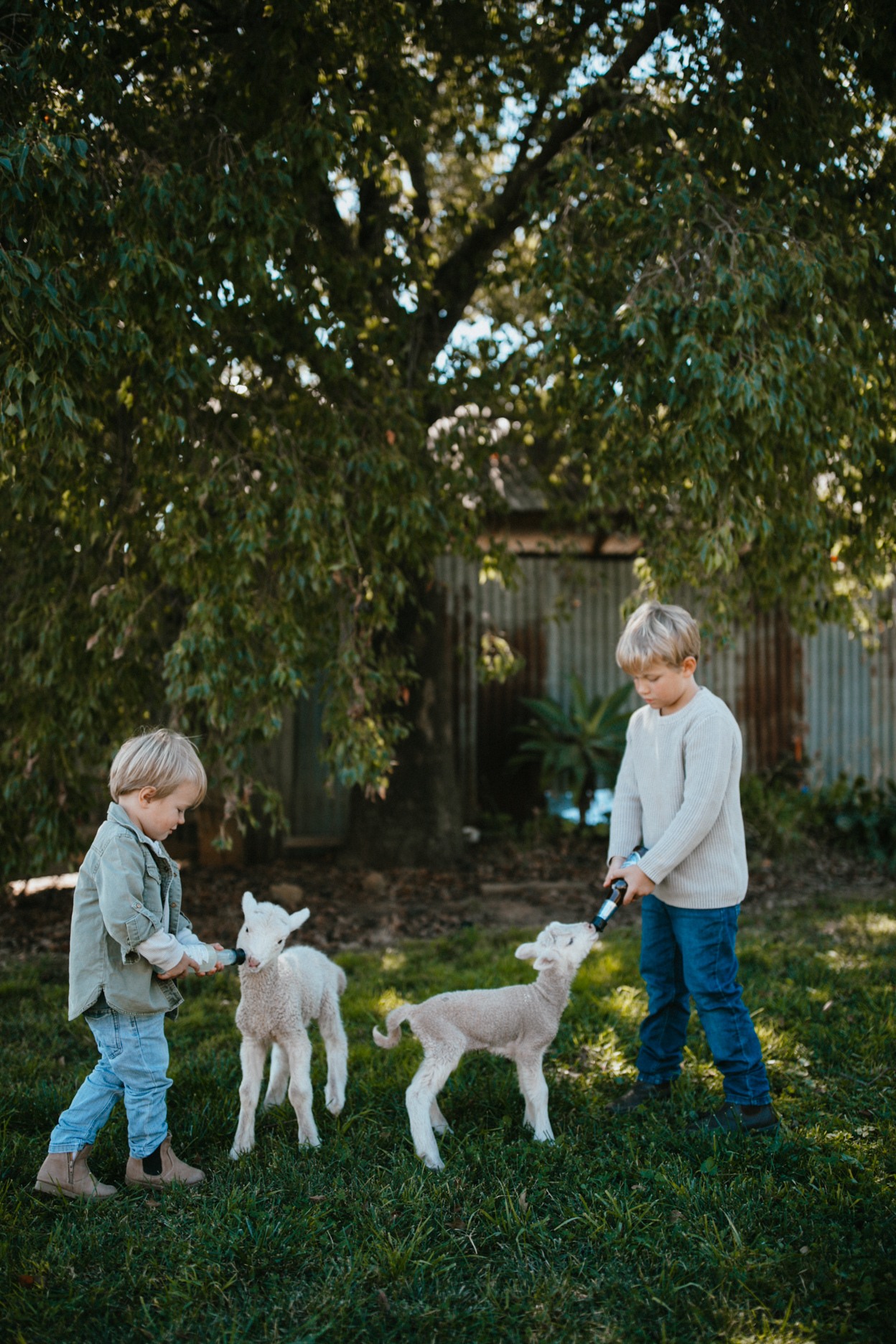
“There are nights the boys have had dippy eggs with toast for dinner because cooking took a back seat to a long day in the office or painting a commission.”
After Reg died at the age of 85 in 2018, Whitney decided to enter the relish in the local Manildra Agricultural Show and was surprised when ‘Reg’s Relish’ won first prize. “He would have been chuffed for sure,” she says. “Making relish has now become a regular event. Everyone is quick to ask for a jar and, just as Reg did, we are happy to share. Adam, Tim’s brother, still has an original jar that his grandfather made and he won’t open it: it’s too special!”
When making this prize-winning relish, Whitney photographed her homegrown tomatoes in the kitchen, which inspired a series of paintings. “Still-life painting has since become my favourite form. While they may just be recipe ingredients, they can have deeper meaning, and I’m capturing them in a painting that will last a lifetime, and hopefully bring joy and happiness to someone’s home.”
Sitting on the timber kitchen table while we talk is a plate of freshly made lamington macarons. Dropped off that morning by Em Reynolds, who bakes these delicious creations for her business The Flour Millers Wife, they too represent another part of the wonderful local community. The pair met after their kids became friends at school. Together, they supported each other as they started their own businesses.
“I get to be her official taste tester of any new recipes she has in the works, while she is my number one supporter, my plus one at exhibitions, my necessary critic at times, my emergency kid sitter when needed, my midweek coffee break… all of these things, but most importantly a great friend,” she says.
“A true friend is someone you can be your complete self around, and I have found that in Em; you know, the type of friend where you can just drop in unannounced and request a cookie and cuppa… well, that’s what we have! Being part of a small country town is so special.”
To see more of Whitney Spicer’s work, visit her website or find her on Instagram.
Subscribe to Graziher and never miss an issue of your favourite magazine! Already a subscriber? You can gift a subscription to someone special in your life.
To hear more extraordinary stories about women living in rural and regional Australia, listen to our podcast Life on the Land on Apple Podcasts, Spotify and all major podcast platforms.
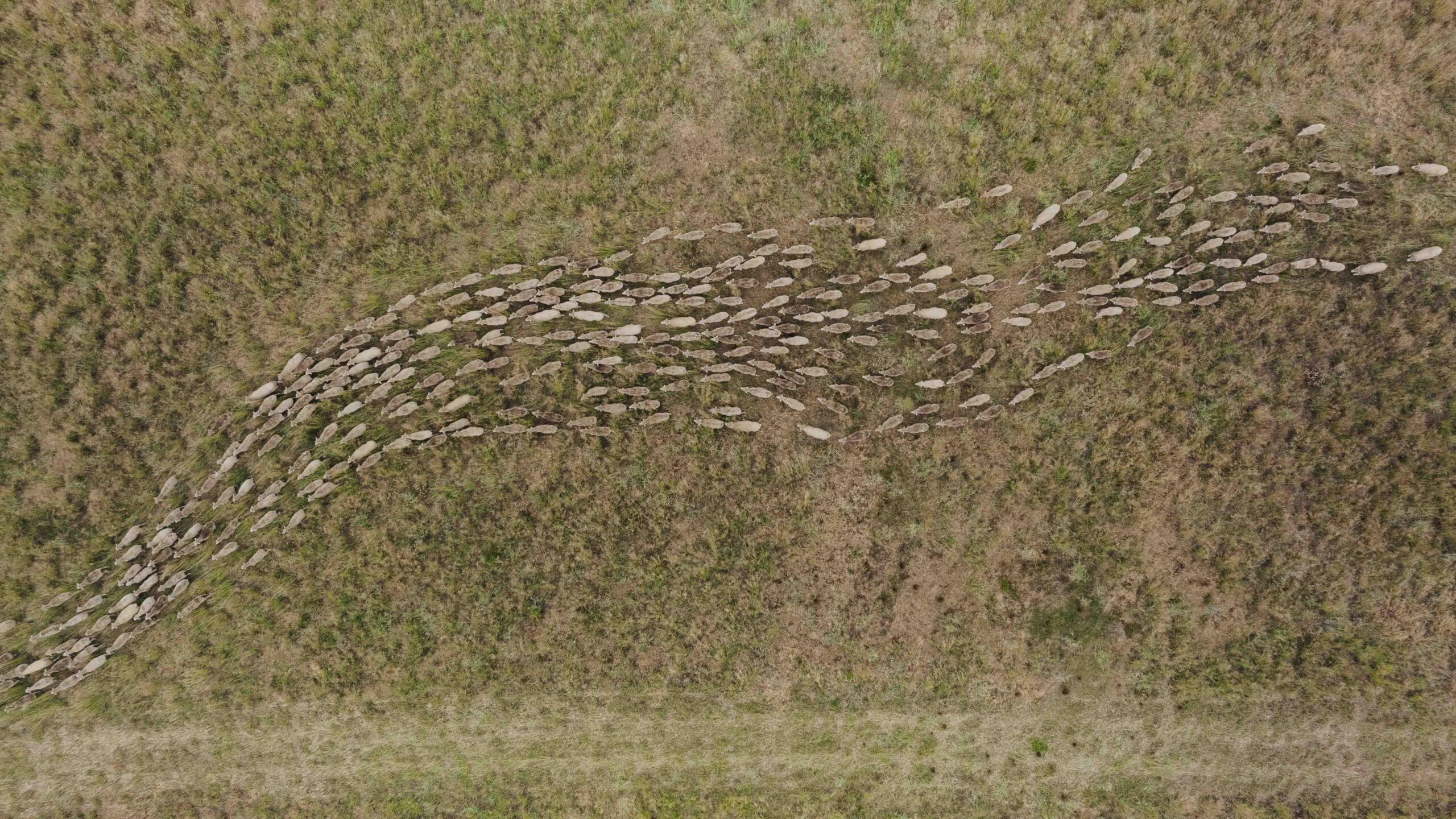
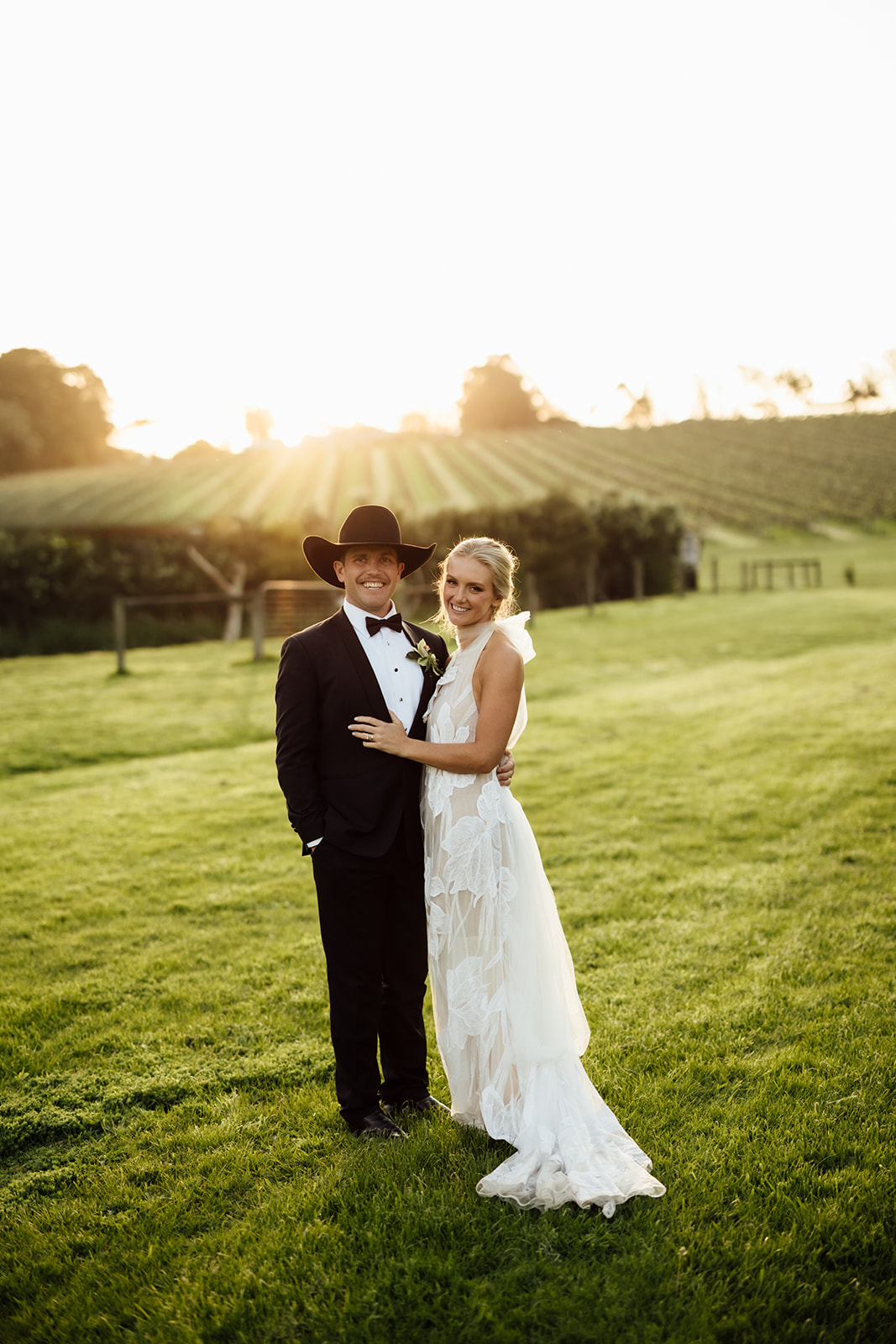
The Mornington Peninsula has never seen so many cowboy hats — but for Greta Stonier and Ben Ryan, the winery was the only venue that made sense.
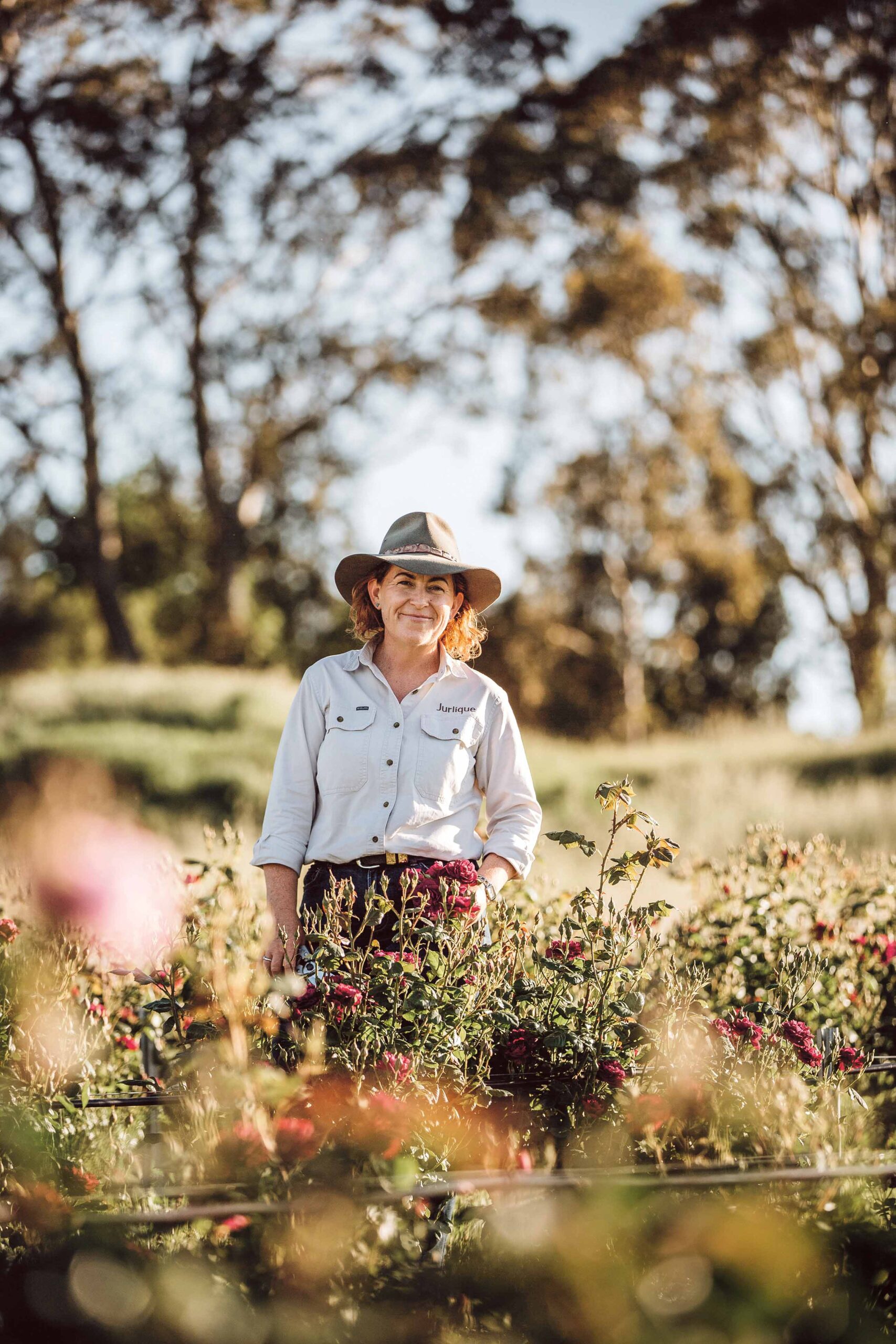
Raised on a dairy farm near Hahndorf, SA, farm manager Cherie Hutchinson has a deep love for the land she works on.